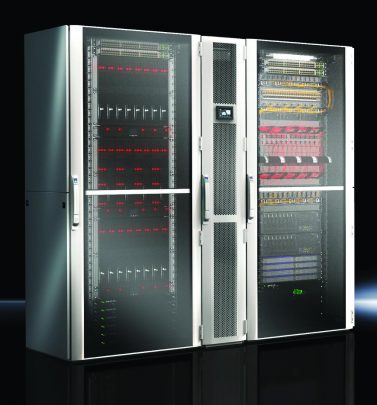
Creativity and connectivity through cool urban spaces
By Rittal
Industry Manufacturing climate-control data centres manufacturing RittalSponsored by RITTAL
Sponsored Content provided by PLANT partners: RITTAL
 A developer of distinctive urban work and data centre spaces in Canada’s major cities provides distinctive environments for creativity and connectivity.
A developer of distinctive urban work and data centre spaces in Canada’s major cities provides distinctive environments for creativity and connectivity.
The company was known initially for its leading role in the emergence of Class I work spaces, a format created through the adaptive re-use of light industrial structures to satisfy the needs of the most demanding office and retail users. Subsequently, their business expanded to urban missed-use properties and focused on urban intensification, as Canadians flocked to downtown locations to live, work, learn and play in greater numbers.
This resulted in a two-fold problem:
- Lack of space in concentrated downtown office areas.
- Rising costs of grade A1 office space being converted into IT Rooms, resulting in a loss of revenue.
The organization was looking to reclaim unused space in basements, parking or “grey areas” of buildings to be converted into smaller data centre solutions that did not require “white room” conditions (lab level clean rooms). They wanted to offer the solutions as a ‘co-location of rack space’ to their tenants in order to recoup the office floor space and add a new revenue stream.
Creating cool solutions
Rittal reviewed the project and realized there was a solution to these challenges.
Climate control concepts from Rittal cover the full spectrum of applications, from cooling a single rack to entire data centres. Security plus optimum energy and cost efficiency are paramount. A diverse range of technical solutions creates individual climate control concepts for racks, suites and rooms.

LCPDX inline cooling.
Photo: Rittal
- Scaled-down cooling and installation. A key requirement was lower cooling per rack, as well as quick and simple installation (where a chilled water or a larger commercial room cooling solution would not fit within the space).
- Hybrid design. Rittal saw a unique opportunity to offer an Edge LCP DX solution in a hybrid design. The front of the rack with LCP DX coolers would be a rack-based cooling solution that would blow air across equipment behind the glass doors to capture 100% of the cooling, while the back of the racks were designed with room heat exchange to capture the heat rejection from racks and an uninterruptible power source (UPS) also located in the room.
- Exterior locations. The condenser units were positioned outside the building above a pedestrian walkway to avoid damage or obstruction. Due to the size, the units could be mounted on most exterior locations in urban areas, which is useful when there is no available chilled water or sufficient space to place a larger roof cooler.
- Space-saving. Minimal space was required for the redundant version by consolidation of cooling circuits in one unit.
- Speed of delivery. The project took very little time from order to delivery to installation, minimizing downtime while not disrupting daily business.
- Flexible design. With the flexibility in design provided by Rittal, the racks and coolers could be moved to other locations (within the building or a new location across town).
- Minimal investment. The solution offered the opportunity to fulfill the current project objectives, and then grow on demand (pay as you grow).
Rittal Systems Ltd. president Tim Rourke said, “Rittal is delighted to support the creation of memorable urban work spaces in Canada. We specialize in developing customized IT cooling solutions for non-traditional IT environments, utilizing our diverse portfolio of data centre solutions to meet clients’ goals of achieving the highest levels of creativity and connectivity!”
For more information visit www.rittal.ca/datasolutions or contact marketing@rittal.ca.
